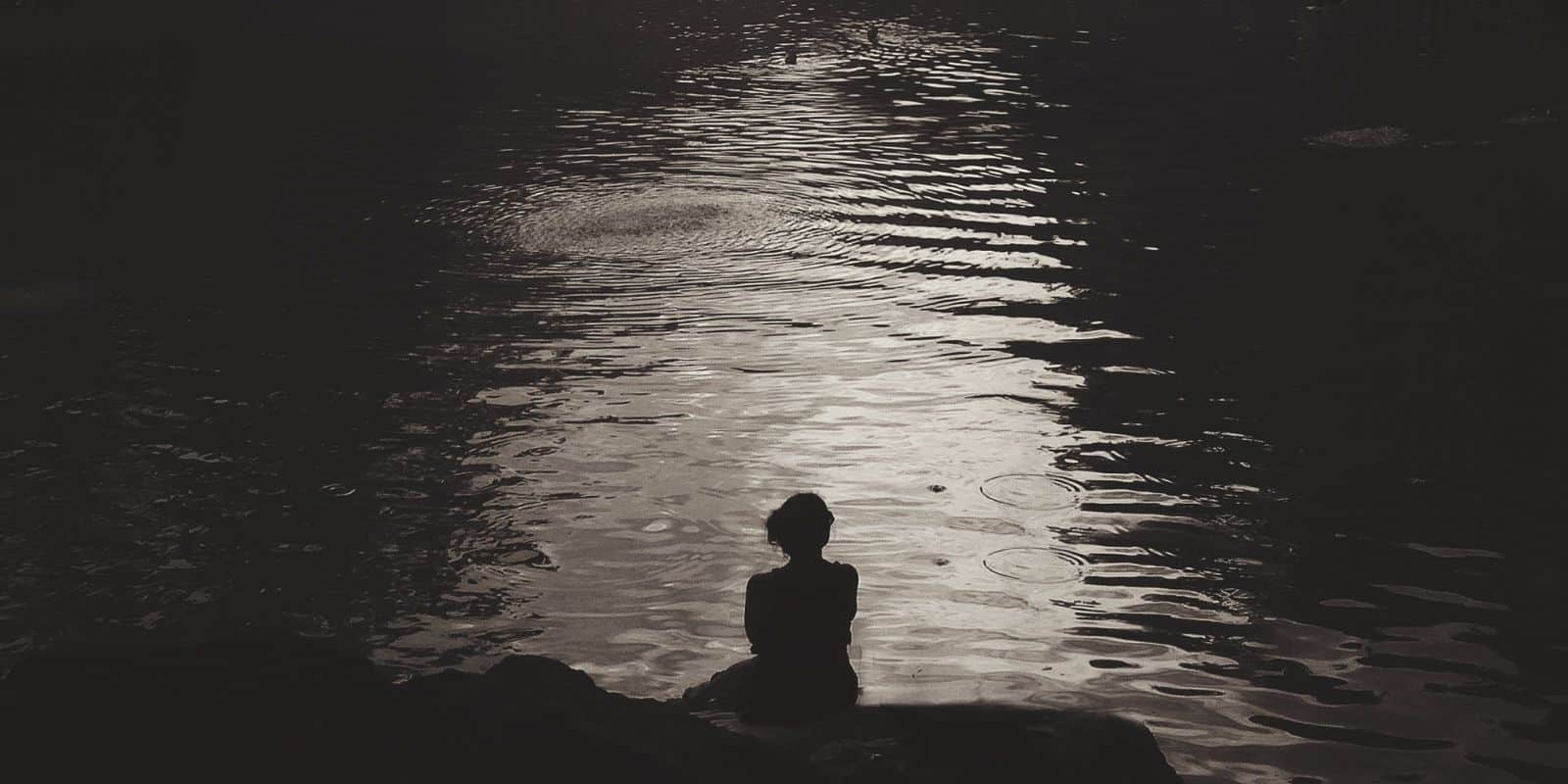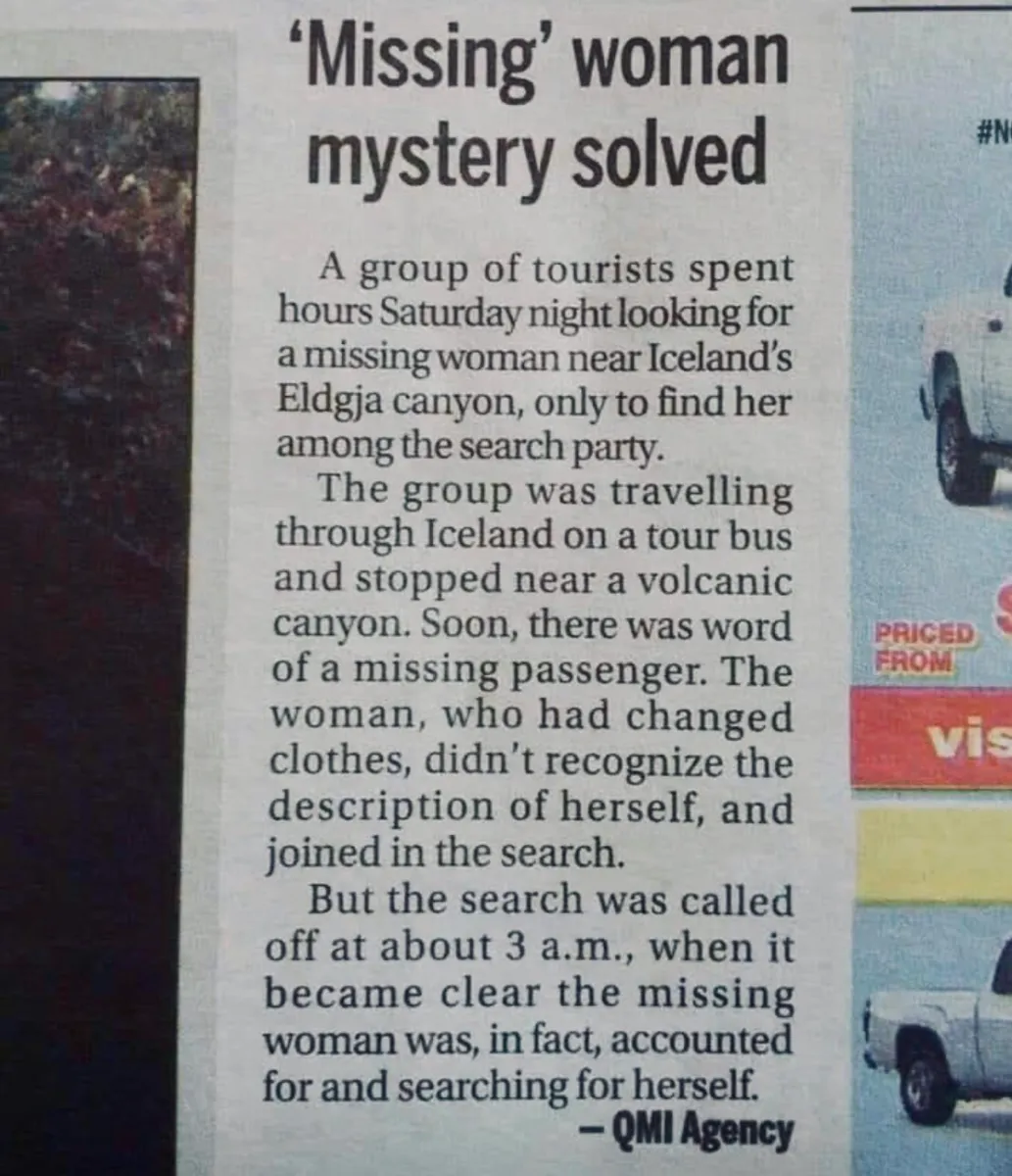This story from Sam Harris about a search party searching for a “missing” woman is so powerful that I had to share it.

A Search Party for the Self: Sam Harris on Searching for what is “Missing” (Short Story)
The Story of the “Missing” Woman
You can watch or listen to the story in this clip from Sam’s podcast with Andrew Huberman (full podcast episode here):
I tried to dig up the actual news story. Here’s what I found:
The Analogy & Moral of the Story
Sam Harris says:
- “It’s not true to say that the missing tourist was found in the way that was expected because the missing tourist was never lost. The missing tourist was part of the search party. When you think about it from her point of view, she’s part of the search party, and she’s looking for the missing tourist not knowing that she, in fact, is the missing tourist. So, what happens at the moment she realizes that everyone’s looking for her? The search isn’t consummated in the way that is implied by the logic of everyone’s use of attention, and yet the problem evaporates. There’s something deeply analogous about the structure of that and the meditative journey.”
The analogy:
- “There is this sense that the self is here, and it’s a problem. It is the string upon which all of my conscious states—mostly unhappy ones—are strung. It’s the thing that is at the center of my anxiety. It’s the thing that I don’t feel good about. It’s the thing that when criticized I sort of let implode. It’s the center of my problem, and now I’m trying to feel better, and meditation has been handed to me as a possible remedy for my situation … This is the thing that is going to cause me to realize that my self isn’t where or as I thought it was. So, now I’m going to look. The sense is that I start out far away from the goal here. I start out with a problem. I’m now meditating on the evidence of my unenlightenment. I can feel my problem. I feel that I’m distracted and distractible. I feel this sort of cramp at the center of my life that’s me. I’m not as happy as I want to be. I’m not as confident as I want to be. I’m more distractible than I want to be. Now, I’m paying attention to the breath.”
The morals:
- “This is what the search party feels like. This is what the the confused tourist feels like in her own search party. She’s looking for the missing person. The angle of the inclination of all of this, and the logic of it, is all wrong. Understandably so, given how we we all get into this situation. It’s useful to continually try to undercut it, and recognize that the thing that’s being looked for is actually right on the surface—which is there is no one looking. If you’re paying attention to the breath, or to sounds, or noticing the next thought arise, this sense that you are over here doing that thing is actually what it’s like to be thinking and not knowing that you’re thinking. There’s an undercurrent of thought that’s going uninspected in that moment. There is just a continual looking for the mind, looking for the center of experience, looking for the one who is looking … The search party was formed in error essentially. The problem that you’re trying to solve with this practice does evaporate in a similar way. You don’t actually get there in the way that you’re hoping for. You drop out the bottom of this thing in an unexpected way … The sense of you as subject isn’t brought along to this thing you’re looking for.”
If that’s not clear, here’s another potent way Harris describes it:
- “This is how it can seem in the beginning even when you’re practicing meditation fairly diligently. It can seem like you’re on the riverbank watching the contents of consciousness flow by. And, meditation is the act of doing that more and more dispassionately, so you’re no longer grabbing at the pleasant or pushing the unpleasant away. You’re just kind of relaxing and, in the most non-judgmental frame of mind, just witnessing the flow. But, if you’re doing that dualistically, you feel like the meditator—you feel like the subject aiming attention, and so now you’re on the riverbank watching everything go past. But, the truth is, you are the river. There is just experience itself. You’re not on the edge of experience. Everything you can notice is part of the flow. There’s no point from which to abstract yourself away from the flow—to stand outside it—and to say, ‘okay, this is my life, this is my experience, this is my body.’ Yes, you can do that—those are all just thoughts but that’s more of the flow. There’s a process by which you would eventually recognize that there’s no distance between you and your experience.”
“When I’m talking about non-duality, I’m talking about the loss of a sense of subject … This sense of of subject-object division in consciousness is illusory and vulnerable to investigation … This whole dualistic setup of subject and object is the thing that is already not there. It’s not that it’s there and you meditate it out of existence successfully—it’s really not there.”
You May Also Enjoy:
- Browse all simple & short stories





